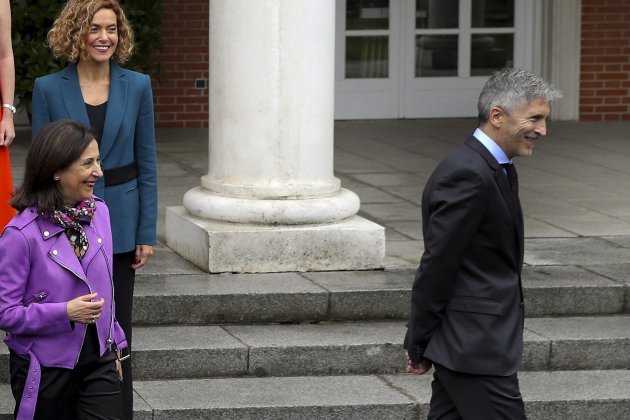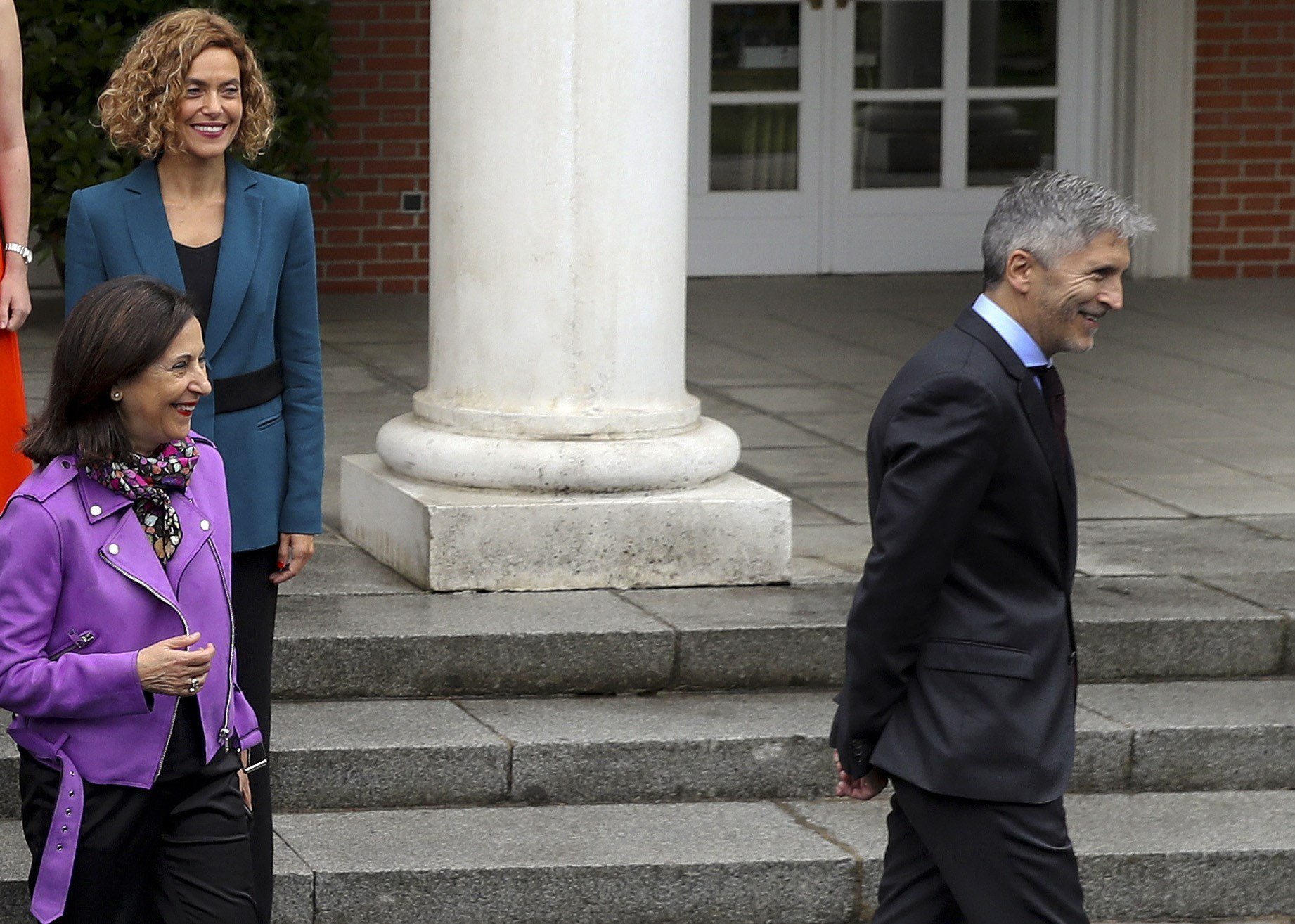The Spanish deep state has successfully manoeuvred so that Margarita Robles, PSOE's spokesperson in the Spanish Congress, did not become the new interior minister, because during the last years of Felipe González's government she was that ministry's secretary of state and investigated the so-called state's cesspit. The result is that that ministry has gone to a former judge with an accepted career, Fernando Grande-Marlaska.
González chose her to close the chapter on the GAL, paramilitary units convicted of using assassination, kidnapping and torture in the fight against ETA. The events of this period, known as the Guerra Sucia (Dirty War) in Spain, caused a scandal when they came to light and the GAL were linked to members of the PSOE interior ministry.
Spanish newspapers ABC and El País have reported details of this veto of Robles. A reporter in the former writes that Robles becoming interior minister was seen "with special suspicion by the Civil Guard", thanks to her previous work at the ministry. "The gendarmerie doesn't forget that she was the one who protected the police officers who investigated the Lasa y Zabala affair, a sinister episode in the dirty war against ETA which ended with sentences for the then-general Enrique Rodríguez Galindo, lieutenant colonel Angel Vaquero, Guipúzcoa's civil governer Julen Elgorriaga and Enrique Dorado and Felipe Bayo, both of the Civil Guard".
José Antonio Lasa and José Ignacio Zabala were two young alleged ETA members kidnapped by the GAL in France, reportedly tortured and then murdered.

According to ABC, that period was "especially tumultuous at the interior ministry", with Felipe González's government facing accusations from the media and growing unease in the Spanish police and Civil Guard. This unease was exacerbated by the fusing of the interior and justice ministries. Now, the two forces worry such a fusion could happen again.
El País adds that Robles was "implacable" in the pursuit of the dirty war. "That toughness, above all with the so-called state's cesspit, left its consequences. [Now], in the Interior ministry her past was weighing her down and in Justice, her obvious clashes, to begin with, with the president of the General Council of the Judiciary and the Supreme Court, Carlos Lesmes".
As a result, Pedro Sánchez has ended up giving Robles Defence, a ministry becoming ever more technical and professional. That said, the prime minister has also moved over control of the CNI, Spain's intelligence agency, previously under the control of deputy prime minister Soraya Sáenz de Santamaría.

